Tips for Conducting Your Own Background Check
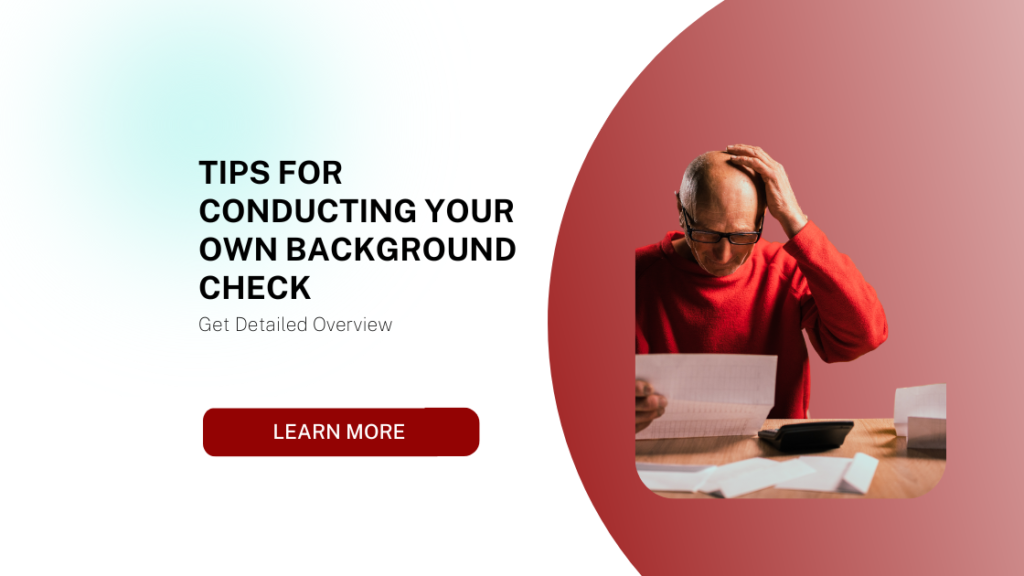
How to Do a Criminal Background Check on Yourself: A Complete Guide
Conducting a criminal background check on yourself can be an empowering process, allowing you to take control of your personal records and ensure that your past doesn’t interfere with your future. Whether you’re preparing for a job application, renting a home, or checking for any errors in your criminal record, knowing how to perform a self-background check is crucial.
This comprehensive guide will walk you through everything you need to know about checking your criminal background, from understanding what’s included in the report to knowing where to get it and how to address any discrepancies you may find.
What is a Criminal Background Check?
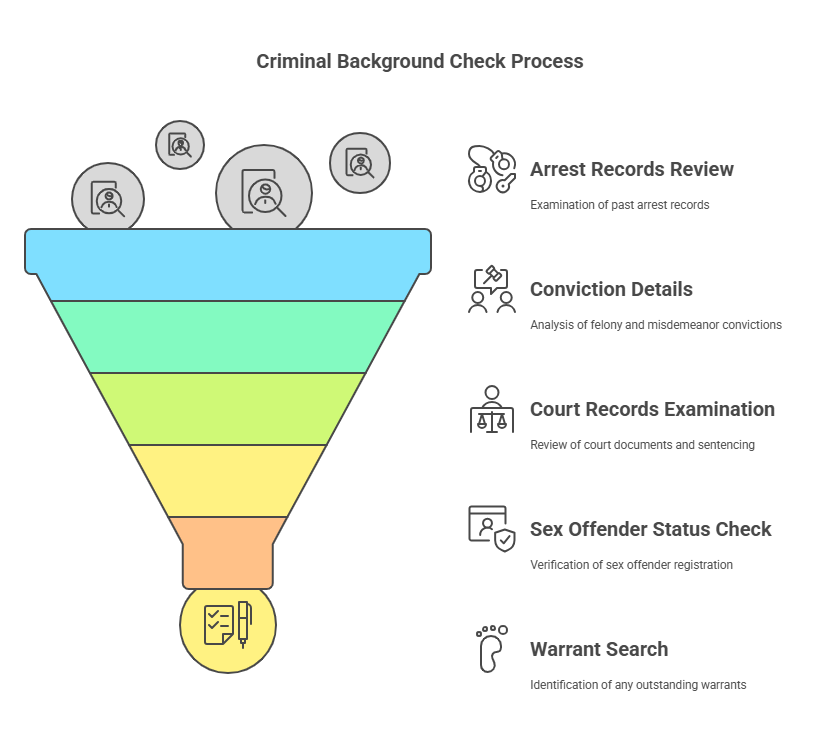
A criminal background check is a process through which an individual’s criminal history is reviewed, typically by law enforcement agencies, employers, or landlords. The goal is to uncover any past arrests, charges, convictions, and other legal actions that may affect a person’s suitability for certain opportunities.
Typically, a criminal background check includes:
- Arrests: Information on whether you’ve been arrested, even if the case didn’t result in a conviction.
- Convictions: Details about criminal convictions, including felonies, misdemeanors, and sometimes, traffic violations.
- Court Records: Any related court documents, including sentencing, probation, or parole records.
- Sex Offender Status: Whether or not an individual is registered as a sex offender.
- Outstanding Warrants: Any active warrants issued for your arrest.
Why Should You Do a Criminal Background Check on Yourself?
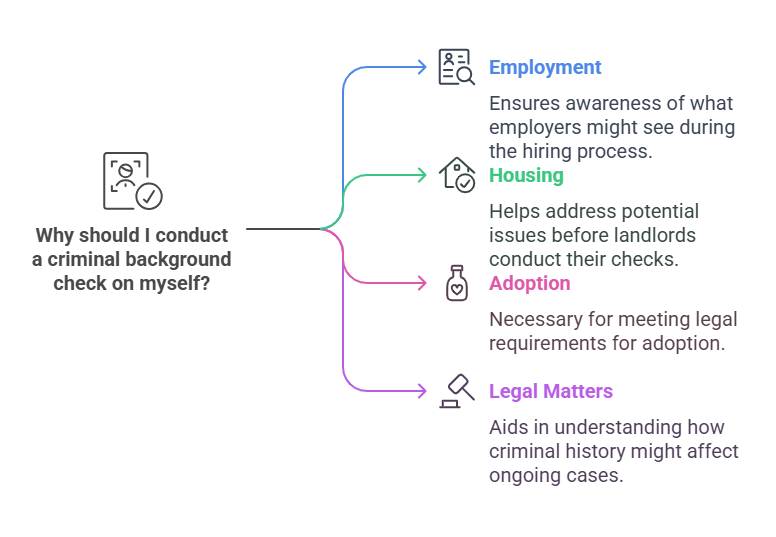
Conducting a criminal background check on yourself can serve a number of important purposes. Here are some common reasons why individuals choose to run a background check on themselves:
- Employment: Employers often conduct background checks as part of the hiring process. Checking your own record ensures you are aware of what potential employers will see.
- Housing: Landlords may run background checks before renting property. Knowing what’s on your record can help you address potential issues ahead of time.
- Adoption: Some states require background checks for those applying to adopt children, so you’ll want to ensure you have a clean record.
- Legal Matters: If you’re involved in any ongoing legal case, it’s helpful to know your criminal history and how it might affect the case.
- Personal Review: Simply keeping track of your own history can help you stay aware of any mistakes or errors that could need correcting.
Common Reasons for Conducting a Self-Background Check
There are various situations in which running a criminal background check on yourself is a good idea. Common reasons include:
- Job Applications: Many employers request criminal background checks during the hiring process, especially for positions involving security, finance, or working with vulnerable populations.
- Tenant Screening: Landlords often check criminal records to ensure the safety of their residents.
- Professional Licensing: Some professions, such as healthcare, law, and education, require background checks as part of the licensing process.
- Insurance: Certain insurance companies may check your criminal history to assess risk.
- Expungement Review: If you’re applying for expungement, understanding your criminal history is necessary to see which records may be eligible for removal.
Overview of the Process
The process for conducting a criminal background check on yourself is relatively simple, but it may vary slightly depending on the method you choose. You can request your own background check from local law enforcement agencies, state police, or through online services.
In the following sections, we’ll explore how to conduct a criminal background check step by step, from where to request it to what information is included.
Step-by-Step Guide on How to Do a Criminal Background Check on Yourself
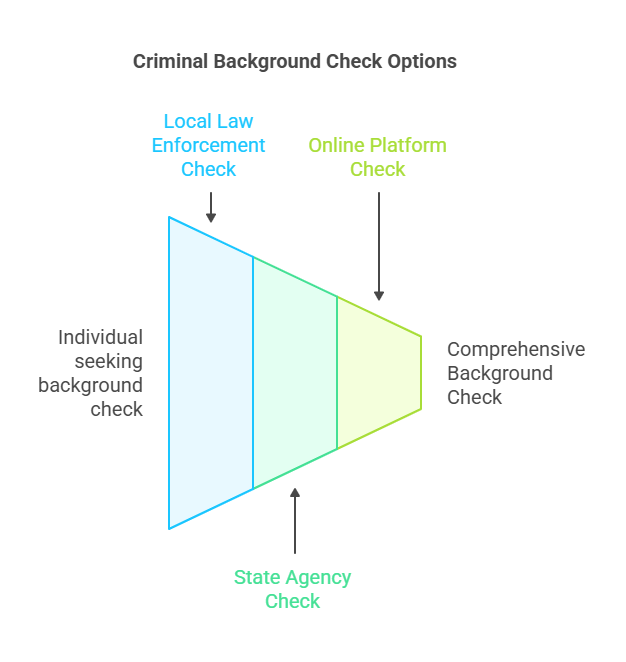
Where to Get Your Criminal Background Check
There are several places where you can request a criminal background check on yourself. The main options include:
1. Local Law Enforcement Agencies
Local police departments or sheriff’s offices are often the first places to consider when requesting a criminal background check. Here’s how it generally works:
- Request Process: Visit your local police station or sheriff’s office. You’ll typically need to fill out a request form, provide identification, and pay a fee for the check.
- Types of Checks: Local law enforcement can provide background checks based on local and county records. However, they may not have access to statewide or national databases.
- Fingerprinting: In many cases, fingerprinting may be required for more thorough checks, especially if you’re requesting a background check for employment or certain legal matters.
2. State Agencies
State agencies, such as the State Police or the Department of Public Safety, offer statewide background checks. Here’s how to go about it:
- Request Process: You can request a background check from the state’s central criminal record repository or the state police department, either online, by mail, or in person. Most states require you to provide your fingerprints.
- Types of Checks: State agencies often provide criminal background checks that include state-level criminal records, including any convictions, arrests, and warrants.
- State Databases: These agencies will typically have access to databases containing records from across the entire state, which is helpful for more comprehensive checks.
3. Online Platforms
For those seeking a quicker and more convenient way to run a self-background check, using an online platform like ExactBackgroundChecks can be a great option. Here’s how it works:
- Request Process: Through ExactBackgroundChecks.com, you can easily request your background check by filling out an online form and submitting payment. The process is fast and you can receive your report within hours, sometimes even sooner.
- Types of Checks: Online platforms typically offer national background checks, covering records from all 50 states. These services pull from a wide range of public records databases, ensuring thorough results.
- Benefits: Online services offer convenience, speed, and sometimes lower costs compared to state or local agencies.
Required Information for the Check
When requesting a criminal background check on yourself, you’ll need to provide some basic personal information. This may include:
- Full Name: Ensure your name is spelled correctly, including any aliases or maiden names if applicable.
- Date of Birth: This helps identify your records accurately.
- Social Security Number: Some agencies may ask for your SSN to perform more thorough checks.
- Fingerprints: For certain checks (like those from state or federal agencies), you may need to submit fingerprints.
- Other Identifiers: Additional information, like your address or driver’s license number, may be requested depending on the agency or platform.
Types of Checks You Can Request
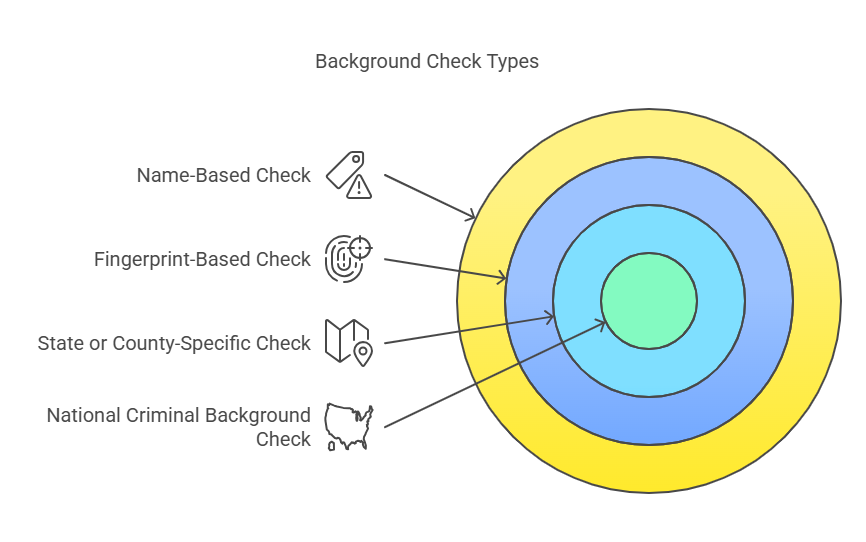
Different types of background checks provide varying levels of detail. The common types include:
- Name-Based Check: This is the most basic check, where the agency or platform looks up your criminal history based on your name. However, it may not be as comprehensive as a fingerprint-based check.
- Fingerprint-Based Check: This is a more detailed and accurate method, as it relies on your fingerprints to verify your identity and criminal history.
- National Criminal Background Check: This check searches for criminal records across all states, offering a more complete picture of your criminal history.
- State or County-Specific Check: Some checks may focus on a specific jurisdiction, providing a more limited scope of information but useful for addressing concerns in that region.
What Information Will Appear in Your Criminal Background Check?
The specific information found in your criminal background check may vary, but it typically includes the following:
- Arrests: Any past arrests, even if charges were not filed or the case was dismissed.
- Convictions: Information about felony or misdemeanor convictions, including the nature of the crime, the court’s decision, and sentencing.
- Sex Offender Status: Whether or not you are listed on the National Sex Offender Registry.
- Warrants: Outstanding arrest warrants.
- Court Records: Details of court proceedings, including trials and hearings related to any criminal charges.
Legal Aspects of Criminal Background Checks
Your Rights When Checking Your Own Background
Under the Fair Credit Reporting Act (FCRA), individuals have the right to request and review their own criminal history. This ensures you can check for errors, ensure the accuracy of your records, and be aware of any issues that may arise during job applications or other processes.
What You Can and Cannot Do with Your Criminal Background Check
- Use in Legal Matters: You can use your criminal background check to check your record for errors or apply for expungement.
- Sharing with Employers: Employers typically require your consent before running a background check. You cannot use your self-check to bypass this requirement.
- Expungement and Record Sealing: If you find that you have an offense that is eligible for expungement, it’s important to follow the legal process for removing or sealing that record.
Employer Use of Background Checks
Employers have certain obligations when it comes to background checks, including following EEOC guidelines and ensuring they don’t violate anti-discrimination laws.
FAQs About Criminal Background Checks
How long does it take to get a criminal background check on yourself?
Processing times vary. Online services can offer results within hours, while state agencies may take several days or even weeks for more detailed checks.
Can I do a criminal background check on myself without leaving my home?
Yes, online services like ExactBackgroundChecks.com allow you to check your criminal background without leaving home.
What should I do if I find errors on my criminal background check?
If you notice discrepancies, you should contact the relevant agency or platform to dispute the findings. You may also need to provide additional documentation to correct the error.
Does a criminal background check show all my past offenses?
Not all offenses may appear, especially if the records have been expunged or sealed.
How much does it cost to get a criminal background check on myself?
Costs vary depending on the service provider. State or local agencies may charge a fee for processing, while online platforms like ExactBackgroundChecks.com typically charge a flat fee for their services.
How long does it take to get a criminal background check on yourself?
Processing times vary. Online services can offer results within hours, while state agencies may take several days or even weeks for more detailed checks.
Can I do a criminal background check on myself without leaving my home?
Yes, online services like ExactBackgroundChecks.com allow you to check your criminal background without leaving home.
What should I do if I find errors on my criminal background check?
If you notice discrepancies, you should contact the relevant agency or platform to dispute the findings. You may also need to provide additional documentation to correct the error.
Does a criminal background check show all my past offenses?
Not all offenses may appear, especially if the records have been expunged or sealed.
How much does it cost to get a criminal background check on myself?
Costs vary depending on the service provider. State or local agencies may charge a fee for processing, while online platforms like ExactBackgroundChecks.com typically charge a flat fee for their services.
Conclusion
Conducting a criminal background check on yourself is a proactive step in ensuring that your past does not interfere with your future. Whether for employment, housing, legal matters, or personal review, knowing what’s on your record is crucial. By using trusted services like ExactBackgroundChecks.com, you can easily obtain a comprehensive report, ensuring you are aware of any potential issues before they affect your life. Take the initiative today and ensure that your criminal background is accurate and up-to-date.




This is such a helpful guide! Running a self-background check is crucial for jobs, housing, or just staying informed.